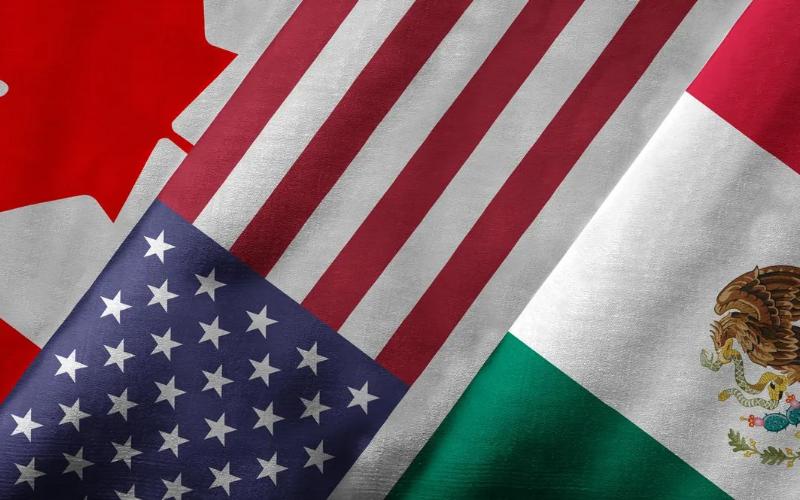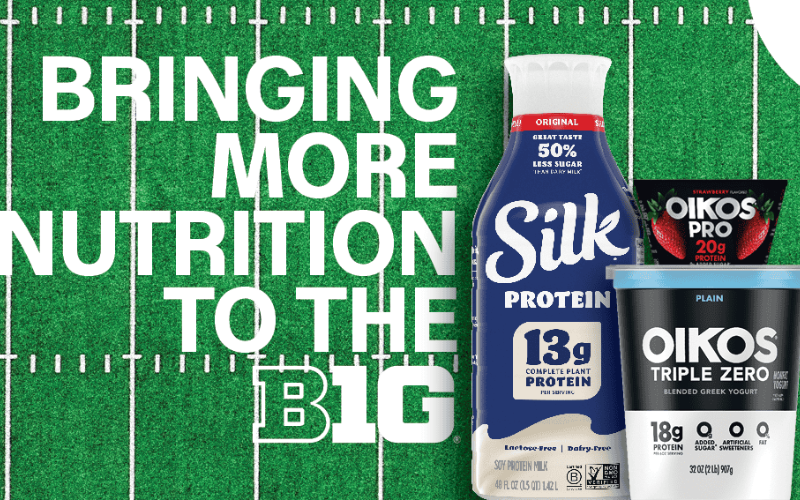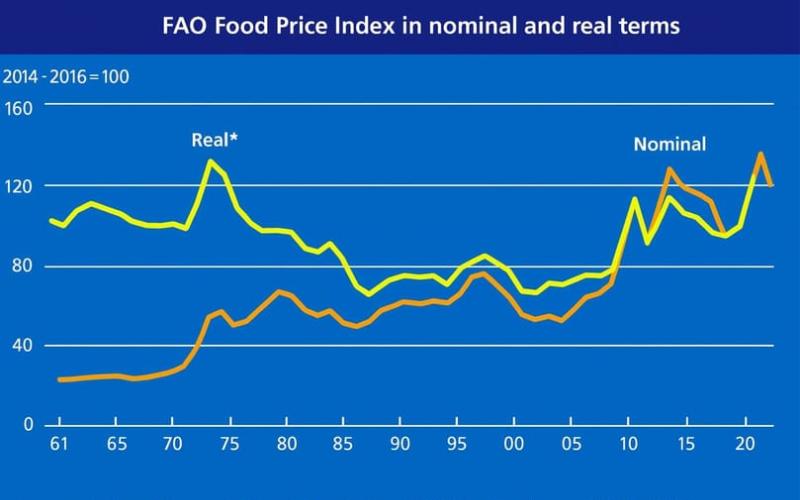‘Simply Absurd’: 95% of Starbucks Shareholders Vote Against PETA’s Call to Drop Non-Dairy Surcharge
Source: The DairyNews
During Starbucks’ annual shareholder meeting this month, 94.7% voted against PETA’s proposal to drop the extra charge for plant-based milk in the US, with the board of directors stating that prices are dictated by country-specific market conditions.

“Charge more for dairy and less for vegan milk.” This was the message laid out by Jacqueline Sadashige, PETA’s manager of corporate responsibility, at Starbucks’ annual shareholder meeting on March 13.
If you’re vegan or lactose-intolerant, you shell out up to 90 cents more for non-dairy milk at what is now the world’s second-largest restaurant chain – at least in its home market. In countries like the UK, China, Argentina, France, Belgium and the Netherlands, this isn’t the case. People opting for plant-based milk don’t have to pay extra for their choice in these regions.
But in the US, where Starbucks introduced soy milk before the turn of the century – and has since added almond, coconut and oat milk to its offering – the company argues that market conditions don’t allow it to offer non-dairy milks free of charge. And this was reflected in its vote on PETA’s proposal – which was representing Sandy Labowitz, who holds at least $25,000 worth of Starbucks stock – with just 5.3% of shareholders agreeing to the call.
Customers and activists have been campaigning for the end of the non-dairy surcharge for several years – it isn’t the first time PETA has presented this proposal to Starbucks’ shareholders. But the animal rights charity says it will continue to protest. “PETA is using geofencing technology to push the spot into the web browsers of Starbucks executives at the company’s headquarters and customers at its Reserve Roastery in Seattle,” Sadashige tells Green Queen.
Earlier this month, Starbucks was hit with a disability discrimination lawsuit for the surcharge (much like Dunkin’). But for now, the coffee chain will continue to upcharge customers for plant-based milk options.
Why PETA is asking Starbucks to ditch the non-dairy surcharge
PETA has been calling on Starbucks to nix the alt-dairy surcharge for years, with the campaign being backed by celebrities like Sir Paul McCartney and Succession actor James Cromwell (who infamously superglued himself onto a Starbucks counter in protest in 2022).
“Every nondairy milk fee at the register shows Starbucks for what it currently is: a greedy corporation putting profits over animals, the planet, and customers’ health,” PETA’s executive VP, Tracy Reiman, said in a strongly worded statement ahead of the shareholders meeting. “PETA is demanding that Starbucks put its money where its mouth is by ending this shameful upcharge, which would be no tall order.”
The animal rights organisation outlined concerns from a Starbucks shareholder about the issue. “I remember when Starbucks was one of the first coffeehouses to offer plant-based milks. This was decades ago. Access to and consumer demand for plant milk have never been stronger. Plant milk is much healthier for us than cow’s milk, and there are no cruelty-to-animals concerns with plant milk,” its supporting statement read.
“Furthermore, climate scientists around the world recommend that people drop dairy to cut pollution and stave off global warming. It’s time that Starbucks rewarded people, not penalised them, for opting out of dairy. I would like to ask this: Why won’t Starbucks US charge people extra for dairy instead of vegan milks?”
The official proposal noted how plant-based milk has become increasingly popular over the years – it’s in over 41% of American households, for example. Meanwhile, lactose intolerance and milk allergies are considered disabilities in the US, with at least 12% of consumers suffering from the former, and over 15 million having a milk or dairy allergy. One estimate claims that between 80-90% of African Americans, Native Americans and Asian Americans are lactose-intolerant.
Plus, plant-based milks are indisputably better for the environment, with dairy emitting three times as many emissions and using over 11 times more land than soy, oat and almond milk. Producing cow’s milk also consumes more than 13 times the water it takes to make oat or soy milk. “Starbucks has admitted that cow’s milk is the biggest contributor to the company’s carbon footprint, but it continues to put profits first by charging extra for animal- and planet-friendly vegan options,” says Sadashige.
The proposal requested Starbucks to issue a report examining any costs to its reputation and impact on projected sales incurred as a result of its ongoing upcharge on plant-based milk, asking the board to present its findings by Q3 this year.
“Starbucks claims that it’s committed to increasing plant-based options as an extension of its sustainability mission, yet it continues to charge an average of 70 cents extra per beverage for plant-based milks,” it read. “Failure to meet publicly stated corporate responsibility goals has been known to negatively impact consumer sentiment toward companies and may ultimately affect the value of a company’s stock.”
What happened at the Starbucks shareholder meeting?
In its proxy statement for 2024, Starbucks responded to the proposal for a report by saying: “Commissioning a separate report on the impact of our pricing strategy for plant-based milk customisations would divert resources from our ongoing efforts to expand plant-based options for our customers, a goal that we hope the proponent shares.”
At the meeting, Sadashige criticised this as “simply absurd”. “The statement is not only logically fallacious, but also just bad business. It implies that our company’s plant-based pricing occurs without attention to the broader implications of that pricing strategy and independent of any larger plan for expanding plant-based options,” she explained.
“Huge subsidies for the dairy industry in the United States may make cow’s milk cheaper, but there’s a simple fix for that,” she said, proposing a higher charge for dairy and lower for non-dairy milks, which she claimed “would likely have no financial effect” on the company.
Outlining why this is a big deal, she noted how dairy consumption in the US recently hit an all-time low, and that Gen Zers – with their $450B spending power globally – are ashamed to order conventional dairy in public. Additionally, most people of colour suffer from some form of lactose intolerance, making them “victims of a widening racial wealth gap” as the upcharge may deter them from even entering a Starbucks store.
Sadashige further argued that Gen Alpha – tipped to be the largest generation in history – will be the first majority-minority demographic in the US, likely increasing the demand for plant-based milk, while youngsters have become frustrated with an ignorance of climate issues, and parents of Gen Alpha children are already communicating with them about racism and climate change.
Finally, she suggested that the non-dairy surcharge reflects a failure to align the coffee chain’s publicly stated values with its business practices, noting how greenwashing can discourage consumers and affect a company’s stock. “Given Starbucks’ opaque pricing strategy and apparent lack of attention to the greater repercussions of that strategy’s effect on consumer sentiment and behaviour, it’s reasonable for shareholders to request a report examining any costs to Starbucks’ reputation and any impact on its projected sales incurred as a result of its ongoing upcharge on plant-based milks,” Sadashige concluded.
Why Starbucks shareholders voted against free plant-based milk
Starbucks’ general counsel Brad Lerman acknowledged Sadashige’s words and reiterated the board’s recommendation of a vote against the proposal, for the reasons outlined in the proxy statement. So, what were they?
The company doubled down on its rollout of plant-based milks in nearly all stores globally, arguing that its recent plant-based drink innovations “build on our decades-long legacy of providing customers with more choices”. “To empower customers and to promote more environmental practices, we continue to explore alternative menu items, including a variety of plant-based protein sources and other offerings, while developing tools and training to improve environmental impacts and opportunities for current and new products,” its statement read.
It noted that people can customise any drink with its plant-based options. “As with other beverage customisations, the price for plant-based milk customisation varies by market and depends on a mix of considerations,” it stated. “In some geographies, market conditions allow us to price plant-based milk more closely to dairy milk than in others… Even in the United States, adding a splash of any plant-based milk to brewed coffee, iced coffee, cold brew and Americano beverages is offered to our customers free of charge.”
Starbucks further explained that it has been innovating and collaborating to source “high-quality dairy, responsibly and sustainably”, explaining that it launched an on-farm pilot in 2023 through the US Dairy Net Zero Initiative with Alliance Dairy to explore renewable and organic fertilisers and water reuse. “We also work with Agolin to improve feed efficiency and reduce enteric methane and are also collaborating with The Nature Conservancy to help refine and scale our approach to more sustainable dairy and environmental stewardship,” the company said.
It added: “We have long been committed to giving more than we take from the planet and to expanding our plant-based menu items. As with all product offerings, we continuously evaluate the market for, and the price of, our plant-based menu items, including plant-based milk customisations.”
And that encapsulates the issue: Starbucks treats plant-based milk as an optional customisation akin to adding vanilla syrup in your latte, instead of the necessity that it is for many lactose-intolerant Americans, especially people of colour.
“Starbucks claims that expansion of its vegan offerings is part of its commitment to give more than it takes from the planet and empower customers. But charging up to 90 cents extra for them doesn’t ’empower’ customers – it penalises them,” says Sadashige, pointing out how chains like Caribou Coffee, Stumptown Coffee Roasters, Noah’s New York Bagels, Philz Coffee and Costa Coffee offer plant-based milk at no extra cost. “Individuals don’t have to wait on companies like Starbucks to do the right thing.”
Asked if PETA has had any further contact with Starbucks, she adds: ”It’s not unusual for a company we’re campaigning against to avoid communicating with us until they’ve made the changes we’re demanding. Starbucks continues to hear daily from consumers who are unhappy with the upcharge.”
Starbucks did not respond to Green Queen’s requests for comment on this story.
Source
If you’re vegan or lactose-intolerant, you shell out up to 90 cents more for non-dairy milk at what is now the world’s second-largest restaurant chain – at least in its home market. In countries like the UK, China, Argentina, France, Belgium and the Netherlands, this isn’t the case. People opting for plant-based milk don’t have to pay extra for their choice in these regions.
But in the US, where Starbucks introduced soy milk before the turn of the century – and has since added almond, coconut and oat milk to its offering – the company argues that market conditions don’t allow it to offer non-dairy milks free of charge. And this was reflected in its vote on PETA’s proposal – which was representing Sandy Labowitz, who holds at least $25,000 worth of Starbucks stock – with just 5.3% of shareholders agreeing to the call.
Customers and activists have been campaigning for the end of the non-dairy surcharge for several years – it isn’t the first time PETA has presented this proposal to Starbucks’ shareholders. But the animal rights charity says it will continue to protest. “PETA is using geofencing technology to push the spot into the web browsers of Starbucks executives at the company’s headquarters and customers at its Reserve Roastery in Seattle,” Sadashige tells Green Queen.
Earlier this month, Starbucks was hit with a disability discrimination lawsuit for the surcharge (much like Dunkin’). But for now, the coffee chain will continue to upcharge customers for plant-based milk options.
Why PETA is asking Starbucks to ditch the non-dairy surcharge
PETA has been calling on Starbucks to nix the alt-dairy surcharge for years, with the campaign being backed by celebrities like Sir Paul McCartney and Succession actor James Cromwell (who infamously superglued himself onto a Starbucks counter in protest in 2022).
“Every nondairy milk fee at the register shows Starbucks for what it currently is: a greedy corporation putting profits over animals, the planet, and customers’ health,” PETA’s executive VP, Tracy Reiman, said in a strongly worded statement ahead of the shareholders meeting. “PETA is demanding that Starbucks put its money where its mouth is by ending this shameful upcharge, which would be no tall order.”
The animal rights organisation outlined concerns from a Starbucks shareholder about the issue. “I remember when Starbucks was one of the first coffeehouses to offer plant-based milks. This was decades ago. Access to and consumer demand for plant milk have never been stronger. Plant milk is much healthier for us than cow’s milk, and there are no cruelty-to-animals concerns with plant milk,” its supporting statement read.
“Furthermore, climate scientists around the world recommend that people drop dairy to cut pollution and stave off global warming. It’s time that Starbucks rewarded people, not penalised them, for opting out of dairy. I would like to ask this: Why won’t Starbucks US charge people extra for dairy instead of vegan milks?”
The official proposal noted how plant-based milk has become increasingly popular over the years – it’s in over 41% of American households, for example. Meanwhile, lactose intolerance and milk allergies are considered disabilities in the US, with at least 12% of consumers suffering from the former, and over 15 million having a milk or dairy allergy. One estimate claims that between 80-90% of African Americans, Native Americans and Asian Americans are lactose-intolerant.
Plus, plant-based milks are indisputably better for the environment, with dairy emitting three times as many emissions and using over 11 times more land than soy, oat and almond milk. Producing cow’s milk also consumes more than 13 times the water it takes to make oat or soy milk. “Starbucks has admitted that cow’s milk is the biggest contributor to the company’s carbon footprint, but it continues to put profits first by charging extra for animal- and planet-friendly vegan options,” says Sadashige.
The proposal requested Starbucks to issue a report examining any costs to its reputation and impact on projected sales incurred as a result of its ongoing upcharge on plant-based milk, asking the board to present its findings by Q3 this year.
“Starbucks claims that it’s committed to increasing plant-based options as an extension of its sustainability mission, yet it continues to charge an average of 70 cents extra per beverage for plant-based milks,” it read. “Failure to meet publicly stated corporate responsibility goals has been known to negatively impact consumer sentiment toward companies and may ultimately affect the value of a company’s stock.”
What happened at the Starbucks shareholder meeting?
In its proxy statement for 2024, Starbucks responded to the proposal for a report by saying: “Commissioning a separate report on the impact of our pricing strategy for plant-based milk customisations would divert resources from our ongoing efforts to expand plant-based options for our customers, a goal that we hope the proponent shares.”
At the meeting, Sadashige criticised this as “simply absurd”. “The statement is not only logically fallacious, but also just bad business. It implies that our company’s plant-based pricing occurs without attention to the broader implications of that pricing strategy and independent of any larger plan for expanding plant-based options,” she explained.
“Huge subsidies for the dairy industry in the United States may make cow’s milk cheaper, but there’s a simple fix for that,” she said, proposing a higher charge for dairy and lower for non-dairy milks, which she claimed “would likely have no financial effect” on the company.
Outlining why this is a big deal, she noted how dairy consumption in the US recently hit an all-time low, and that Gen Zers – with their $450B spending power globally – are ashamed to order conventional dairy in public. Additionally, most people of colour suffer from some form of lactose intolerance, making them “victims of a widening racial wealth gap” as the upcharge may deter them from even entering a Starbucks store.
Sadashige further argued that Gen Alpha – tipped to be the largest generation in history – will be the first majority-minority demographic in the US, likely increasing the demand for plant-based milk, while youngsters have become frustrated with an ignorance of climate issues, and parents of Gen Alpha children are already communicating with them about racism and climate change.
Finally, she suggested that the non-dairy surcharge reflects a failure to align the coffee chain’s publicly stated values with its business practices, noting how greenwashing can discourage consumers and affect a company’s stock. “Given Starbucks’ opaque pricing strategy and apparent lack of attention to the greater repercussions of that strategy’s effect on consumer sentiment and behaviour, it’s reasonable for shareholders to request a report examining any costs to Starbucks’ reputation and any impact on its projected sales incurred as a result of its ongoing upcharge on plant-based milks,” Sadashige concluded.
Why Starbucks shareholders voted against free plant-based milk
Starbucks’ general counsel Brad Lerman acknowledged Sadashige’s words and reiterated the board’s recommendation of a vote against the proposal, for the reasons outlined in the proxy statement. So, what were they?
The company doubled down on its rollout of plant-based milks in nearly all stores globally, arguing that its recent plant-based drink innovations “build on our decades-long legacy of providing customers with more choices”. “To empower customers and to promote more environmental practices, we continue to explore alternative menu items, including a variety of plant-based protein sources and other offerings, while developing tools and training to improve environmental impacts and opportunities for current and new products,” its statement read.
It noted that people can customise any drink with its plant-based options. “As with other beverage customisations, the price for plant-based milk customisation varies by market and depends on a mix of considerations,” it stated. “In some geographies, market conditions allow us to price plant-based milk more closely to dairy milk than in others… Even in the United States, adding a splash of any plant-based milk to brewed coffee, iced coffee, cold brew and Americano beverages is offered to our customers free of charge.”
Starbucks further explained that it has been innovating and collaborating to source “high-quality dairy, responsibly and sustainably”, explaining that it launched an on-farm pilot in 2023 through the US Dairy Net Zero Initiative with Alliance Dairy to explore renewable and organic fertilisers and water reuse. “We also work with Agolin to improve feed efficiency and reduce enteric methane and are also collaborating with The Nature Conservancy to help refine and scale our approach to more sustainable dairy and environmental stewardship,” the company said.
It added: “We have long been committed to giving more than we take from the planet and to expanding our plant-based menu items. As with all product offerings, we continuously evaluate the market for, and the price of, our plant-based menu items, including plant-based milk customisations.”
And that encapsulates the issue: Starbucks treats plant-based milk as an optional customisation akin to adding vanilla syrup in your latte, instead of the necessity that it is for many lactose-intolerant Americans, especially people of colour.
“Starbucks claims that expansion of its vegan offerings is part of its commitment to give more than it takes from the planet and empower customers. But charging up to 90 cents extra for them doesn’t ’empower’ customers – it penalises them,” says Sadashige, pointing out how chains like Caribou Coffee, Stumptown Coffee Roasters, Noah’s New York Bagels, Philz Coffee and Costa Coffee offer plant-based milk at no extra cost. “Individuals don’t have to wait on companies like Starbucks to do the right thing.”
Asked if PETA has had any further contact with Starbucks, she adds: ”It’s not unusual for a company we’re campaigning against to avoid communicating with us until they’ve made the changes we’re demanding. Starbucks continues to hear daily from consumers who are unhappy with the upcharge.”
Starbucks did not respond to Green Queen’s requests for comment on this story.
Source
Key News of the Week












